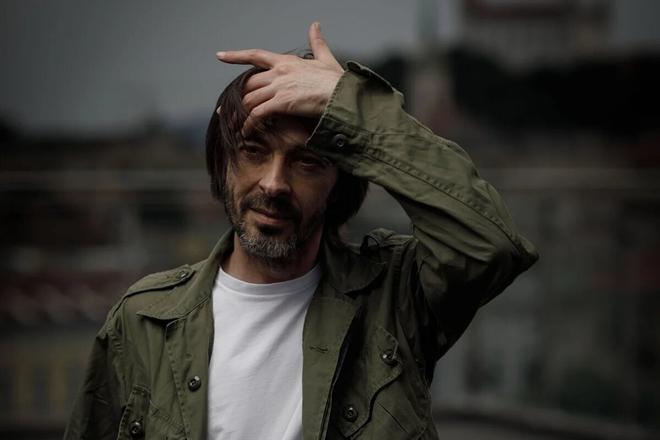Graphic designer from Ukraine MYKOLA KOVALENKO came to Bratislava in 2015, when the situation in his homeland started to get worse. He needed safety, freedom and a peaceful environment to devote himself to the only things that interests him: design and art.
A few years later, investigative journalist Ján Kuciak was killed in Slovakia, the Russians invaded Ukraine, and he was overcome by anxiety and shock. Whether he wanted to or not, he needed to react politically. He mobilised graphic designers all over the world to show solidarity with Slovak journalists. And he himself has been publishing a new poster about the war every day for two years.
You grew up in the Soviet Union. What impact did the communist regime have on your family?
We lived in the Zaporizhzhia Region. Today, this area is occupied by the Russians. I went to a Russian school. Only later did I realise what nonsense it was.
Actually, there were no Ukrainian schools anywhere in the vicinity, they were all Russian. Why? Even then, under communism, the Russians put pressure on us and wanted to conquer us. We didn't even have Ukrainian books. Almost none were published. We didn't know our authors, we only read Pushkin and Dostoyevsky.
Did the Russians only put pressure on Ukraine or on other countries as well?
On Moldova, Armenia, Azerbaijan, Kazakhstan. Everywhere they made it clear: We are Russians. In some places they were less successful. In others they were more successful, for example, they were more successful in Belarus, less so in Georgia.
How did their propaganda affect you?
I didn't really notice it as a kid. I didn't think the Russians were the enemy. In retrospect, I see that it was clear.
I think you experienced something similar with the Russian tanks that arrived [in Czechoslovakia] after 1968. The Soviet Union and Czechoslovakia were officially friends, but the appearance of tanks on your territory was nothing but a sign of hostility. That's why I don't understand when I meet someone today in Slovakia who defends the Russians, supports Putin and his dictatorship. Unfortunately, there are enough of these Slovaks.
How is Putin's regime managing to build patriotism in Russians?
They watch a lot of TV where nothing but Putin's greatness is talked about. They listen to the same thing for 20, 30, 50 years. We are Russians, we are the best and we will conquer everyone. America is evil. The West is evil.
I don't know how it works in their heads and I can't even deal with it. To tell the truth, I don't even want to see them anymore.
Italians are proud of fashion, Chinese of electronics, Japanese of cars. What are Russians proud of?
It's enough for them to be proud that they have a big country. And that they have a lot of weapons. That is their strength.


 Graphic designer Mykola Kovalenko. (source: Courtesy of M. K.)
Graphic designer Mykola Kovalenko. (source: Courtesy of M. K.)